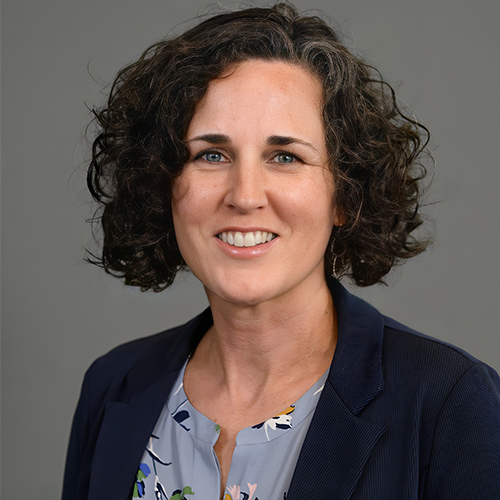Paula McAvoy
Assoc Professor
She/her
PhD Coordinator for the Social Studies Program Area of Study
Teacher Education and Learning Sciences
Center for Technology and Innovation 324
Bio
Paula McAvoy earned her PhD in philosophy of education in 2010 at UW-Madison’s Department of Educational Policy Studies. Since then, she has worked as an assistant professor at Illinois State, an associate program officer at the Spencer Foundation and as the Director of the Center for Ethics and Education at UW-Madison. Prior to this, she taught high school social studies for 10 years at the Foothill Middle College Program in Los Altos, California.
Dr. McAvoy is the PhD coordinator for the Social Studies Program Area of Study.
Research Interests
My research focuses on philosophical and empirical questions concerning the relationship between schools and democratic society. I address two broad questions:
1. What educational aims and practices are most appropriate for preparing young people for living within a non-ideal democratic society (e.g. structural inequalities, political polarization)?
2. How should teachers and administrators make professional judgments about the dilemmas they face given non-ideal conditions? For example, what ethical challenges do teachers encounter when they engage students in discussions of controversial political issues?
Selected Articles and Chapters
- McAvoy, P. & Lowery, A. (2022). Structure matters: Comparing deliberation and debate. in J. Lo (Ed.) Making Discussions Work: Methods for Quality Dialogue in the Social Studies. New York: Teachers College Press.
- McAvoy, P. & McAvoy, G.E. (2021). Can debate and deliberation reduce partisan divisions? Evidence from a study of high school students. Peabody Journal of Education. DOI: 10.1080/0161956X.2021.1942706
- McAvoy, P., Hunt, T., Culbertson, M., McCleary, K., DeMeuse, R. & Hess, D.E. (2021). Measuring student discussion engagement in the college classroom: A scale validation study. Studies in Higher Education. DOI: 10.1080/03075079.2021.1960302
- McAvoy, P., Lowery, A., Wafa, N., Byrd, C. (2020). Dining with democracy: Discussion as informed action. Social Education 84(5): 289-293.
- McAvoy, P & Ho, L. (2020). Professional judgment and deciding what to teach as controversial. The Annals of Social Studies Education Research for Teachers (ASSERT ) 1(1): 27-36.
- McAvoy, P. (2017). Should teachers share their political views in the classroom? In B. Warnick & L. Stone (Eds.), Philosophy: Education. Farmington Hills, MI: Macmillan Reference USA, 373-383.
- *McAvoy, P. & Hess, D. (2013). Classroom deliberation in an era of political polarization. Curriculum Inquiry 43 (1): 14–47.
Books
- Gatti, L. & McAvoy, P. (under contract). Just Teacher: Taking the Ethical Long View in the Profession of Teaching. Teachers College Press. Expected date of publication: 2022.
- Hess, D. & McAvoy, P. (2015). The Political Classroom: Evidence and Ethics in Democratic Education. New York: Routledge Press.
Courses Taught
- ECI 535/563 Social Studies Methods
- ECI 525: Contemporary Approaches in the Teaching of Social Studies
- ECI 524 Theory and Research in Global Learning
- ED 795 Scholar Leader Systematic Change
Honors and Awards
- 2017 Grawemeyer Award in Education for The Political Classroom
- 2016 AERA Outstanding Book Award for The Political Classroom
- 2011 Outstanding Dissertation Award in the Politics of Education, Politics of Education Association
- 2008 Spencer Foundation Dissertation Fellowship
Services and Engagements
- Harvard EdCast: “Teaching Across a Political Divide”
- Ethics and Education Podcast Interview “Just Teacher”
- Chair of the AERA SIG: Philosophical Studies in Education (2019-2021); Program Chair (2017-2019)
- Lead Developer of The Discussion Project, a professional development program for faculty. The project is housed within UW-Madison’s School of Education.
- Academic Advisory Board member for the Close-up Foundation in Washington D.C.
- The Conversation (2019): “Students should learn about impeachment in school—here’s how to make it work”
- TheLine (2019): “Political discussions in the classroom: What should educators be trying to do?”
- Teaching Tolerance (2016): Polarized classrooms: Understanding political divides can help students learn to bridge them.
Education
Ph.D. Educational Policy Studies with a minor in Curriculum and Instruction University of Wisconsin-Madison 2010
M.A. Educational Policy Studies University of Wisconsin-Madison 2006
B.A. International Relations University of California Davis 1991
